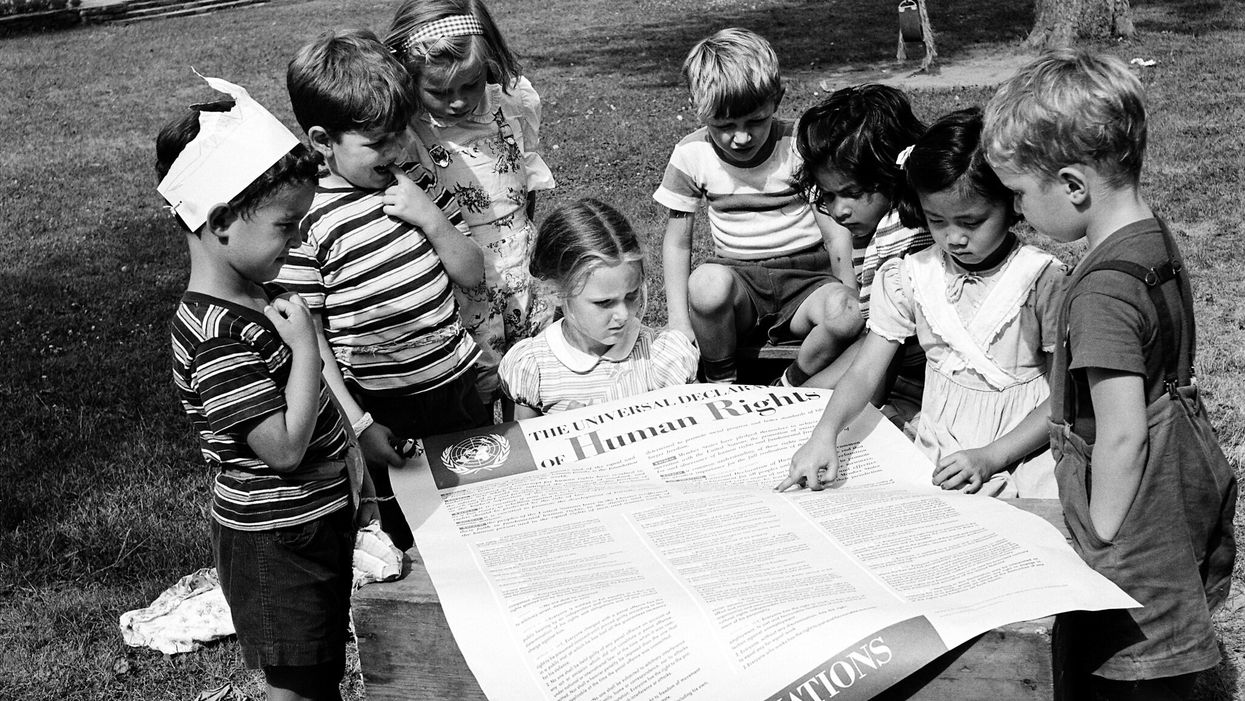
When you think about human rights, it’s impossible to disagree that all people are entitled to life, liberty, and the ability to express themselves freely. These are truths that many of us grew up believing. And yet it may surprise you that the Universal Declaration of Human Rights, a milestone document created by the United Nations, which enshrines these rights and more, is only 72 years old.
Since founded 75 years ago to preserve the worth and dignity of all human beings, the United Nations has achieved an unprecedented number of human rights victories. According to new data shared by the organization, every one of the UN’s now 193 member states have ratified at least one human rights treaty — 80 percent have ratified at least four. But the leadership in uplifting human rights goes beyond laws, treaties, and agreements.
Human rights victories have snowballed over the past 75 years — creating a huge wave of change. Here are a few of the significant human rights milestones that the United Nations and its member countries have achieved:
Between 1946 and 1986: Regional human rights frameworks were created and adopted in the Americas, Africa, and Europe for the first time.
1965: The United Nations created and adopted the first of its human rights treaties, which are dedicated to bringing an end to discrimination and violence on the conditions of race, culture, and political beliefs. Today, nine core human rights treaties are in force.

UN Photo/Eskinder Debebe
1979: The Convention on the Elimination of All Forms of Discrimination against Women was adopted by the UN. Often dubbed the international bill of rights for women, this document both defined the conditions of gender-based discrimination and bound the areas that promote gender equality.
1993: The United Nations established the Office of the High Commissioner for Human Rights to promote and protect human rights.
2002: The International Criminal Court, the first-ever worldwide court dedicated to investigating and ending crimes against humanity, was founded.
2006: The UN Human Rights Council (UNHRC) was established to promote and protect human rights around the world. It has endorsed a number of resolutions including one on human rights and climate change.
2011: UNHRC adopted the first United Nations resolution on sexual orientation and gender identity – placing the rights of the LGBTI community on the international agenda.
2015: The 2030 Agenda and the SDGs emphasize the responsibilities of member states to respect, protect and promote human rights and fundamental freedoms for all.
 Wikimedia/Marco Carrasco
Wikimedia/Marco Carrasco
Yet, the international community has fallen short many times. The current pandemic has not only threatened the health of the world’s population, but has exacerbated existing threats to marginalized communities — including racism, discrimination, and disparity in access to health care — while introducing new ones. Wars, violence, and persecution have forced 70 million people to flee their homes. Refugees, migrants, and asylum-seekers searching for safety are instead often met with prejudice or xenophobia. And anger at the injustice and pain of longstanding systemic racism has triggered mass social movements, including Black Lives Matter in the United States and beyond.
For these reasons and many others, the urgent work of the United Nations must continue swiftly. The march for progress can’t stop. And as we move through these uncertain times, the UN will continue to fight towards a brighter, safer, more equitable future for all of us.
You can learn more about the goals by checking out “Voice Our Future” — an immersive and interactive reality experience exploring the then, now, and next of some of the most critical challenges of our times. You can also further the reach of your voice by taking the one-minute survey to help inform the UN’s thinking and priorities.
